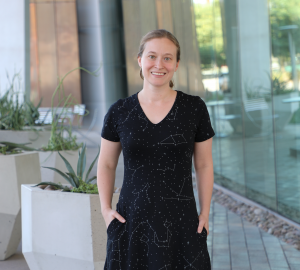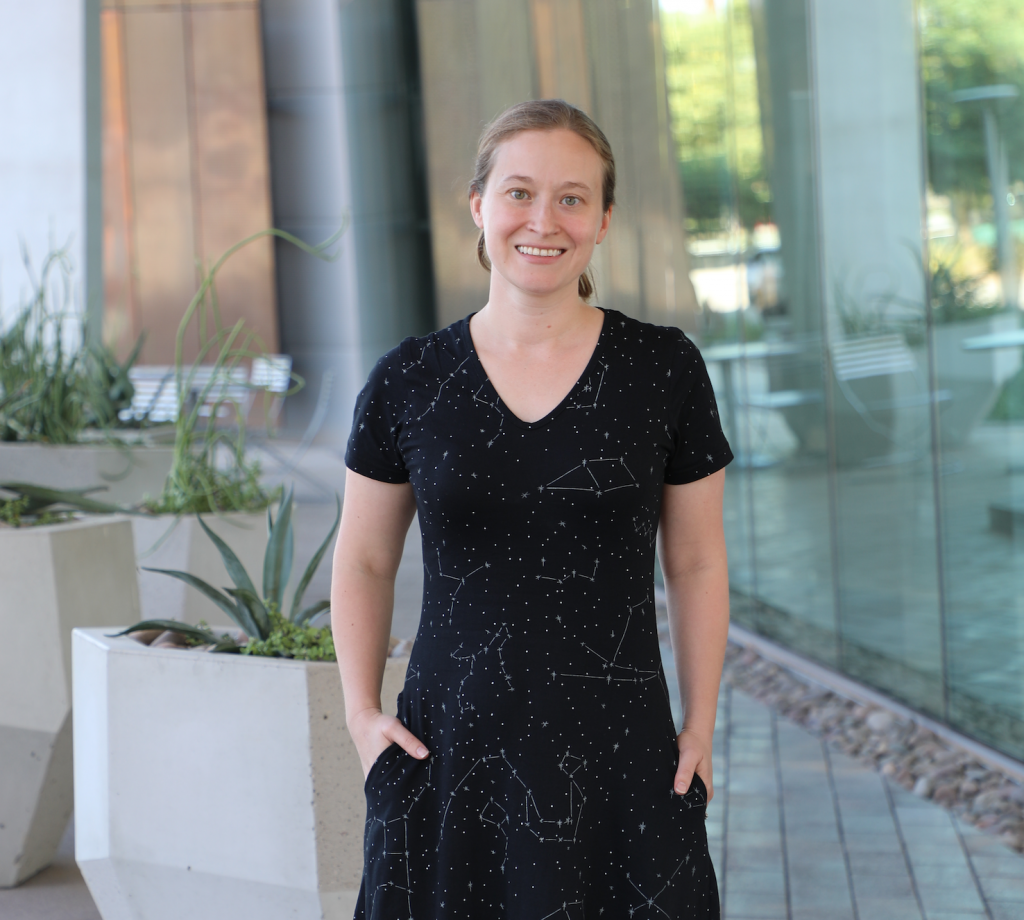New Faculty Profiles allow GSA members who are establishing their first labs to introduce themselves to our wider community. If you’d like to submit your profile, please complete this form.

Kerry Geiler-Samerotte
Assistant Professor at the Center for Mechanisms of Evolution
School Of Life Sciences
Arizona State University
Lab website
Briefly describe the ongoing and expected research projects as your lab gets up and running.
Organisms are comprised of interacting parts. Even within single cells, networks of proteins regulate basic functions. The impact of perturbing one part of an organism—for example, via genetic mutation—can often be modified by perturbation to other parts. This creates an obstacle for scientists: How do we predict traits from genetic data when the same mutation can have different impacts? This also presents challenges during evolution: How does an organism adapt or evolve when changing one trait can influence many other traits, resulting in complex tradeoffs?
To quantify the spectrum of effects that a specific perturbation may have on an organism, the Geiler-Samerotte lab measures how yeast cells respond to subtle genetic or environmental changes. Then, we study how cellular responses change when multiple perturbations are combined or when the magnitude of a perturbation is systematically varied. Our research provides insight into how interactions between small-effect genetic variants shape the evolution of complex traits.
How has being a member of GSA helped you advance in your career? Why do you think societies like GSA are important?
Being a part of GSA has advanced my career by bringing me so many opportunities to present my research and engage with fellow scientists. In particular, in 2013 I was awarded the DeLill Nasser Professional Development Award to travel to a Gordon conference on Ecological and Evolutionary Genomics.
I also especially enjoy the GSA Yeast meeting, as well as the new GSA meeting on Population, Evolutionary and Quantitative Genetics. These meetings have provided me invaluable opportunities to hear about the latest research in the field and to get feedback about new results.
If your position involves teaching, which subjects or courses are you expecting to teach?
In the fall of 2019, I am very excited to co-teach my first course with fellow ASU professor Susanne Pfeifer. We will be implementing the HHMI Science Education Alliance program, “Phage Hunters Advancing Genomic and Evolutionary Science,” at Arizona State University for the first time.
In this year-long intensive course, undergraduate STEM majors will actively engage in research to discover, isolate, and computationally analyze bacteriophages—with the Fall semester being wet-lab focused and the Spring semester being dry-lab focused. The course is designed to provide students with an authentic research experience where they gain a sense of ownership of the scientific problem and of the discoveries made.
Are you looking to recruit students and/or postdocs? If so, please describe and be sure to also post the opportunity to GeneticsCareers.org.
I am recruiting technicians, PhD students, and postdocs. My lab’s research lies at the intersection of cell biology, evolutionary biology, and genetics. Thus, I am interested in recruiting people with training in any of these different backgrounds, particularly people who are interested in bridging disciplines. The Center for Mechanisms of Evolution, with its diverse expertise, is a phenomenal place to explore the intersection of these fields. If using insights from cell biology to understand complex genetics and evolutionary phenomena sounds appealing to you, please drop me a line at kerry.samerotte@asu.edu.
What is your favorite thing about science or about your work?
I only just started as a faculty member in January of 2019, and my favorite thing about the job so far is getting to know the amazing community of biologists at Arizona State University. In particular, the community of evolutionary geneticists in Arizona is extensive, and I am having a blast hearing about all of the cool research going on in my new home.
What do you like to do when you’re not at work?
When I’m not at work I brew beer using my favorite model organism, budding yeast.
Previous training experiences:
- BS, Cornell University (with Rick Harrison)
- PhD, Harvard University (with D. Allan Drummond and Daniel Hartl)
- Postdoctorate, New York University (with Mark Siegal)
- Postdoctorate, Stanford University (with Dmitri Petrov)































